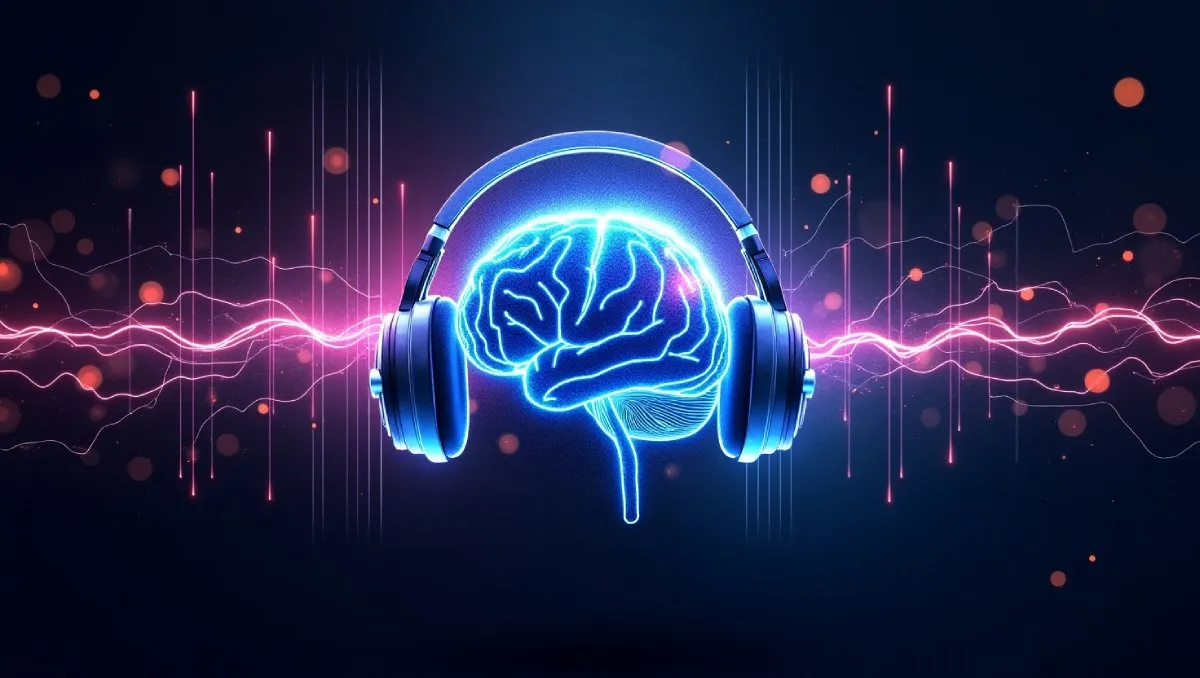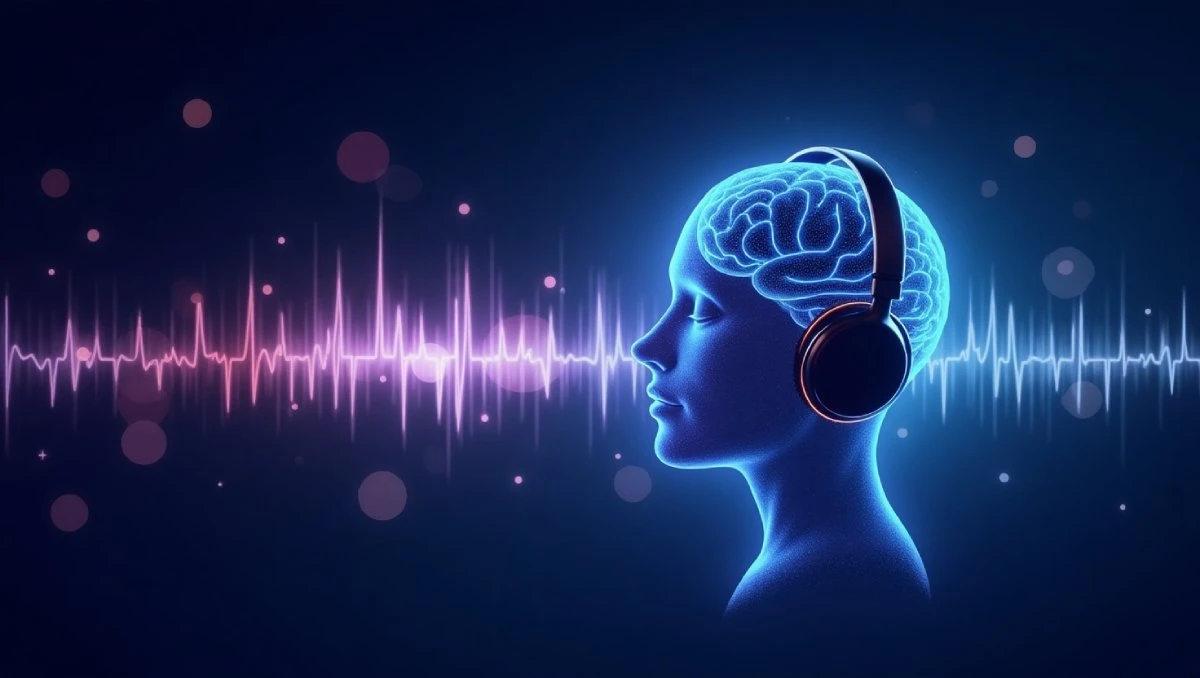Binaural beats have intrigued researchers and wellness enthusiasts alike for years, with many asking, "does binaural beats actually work?" This question has spurred investigations into the science behind these auditory phenomena and their potential benefits. But before diving into their effectiveness, it’s important to understand what binaural beats are and how they are created.
The Science Behind Binaural Beats
The concept of brainwave entrainment suggests that external stimuli, like binaural beats, can synchronize brainwave frequencies to desired states. Different brainwave frequencies are associated with specific mental states:
Delta waves (0.5–4 Hz): Deep sleep
Theta waves (4–8 Hz): Meditation and creativity
Alpha waves (8–13 Hz): Relaxation
Beta waves (13–30 Hz): Alertness and concentration
Gamma waves (30–100 Hz): Higher cognitive functions
By selecting binaural beats corresponding to these frequencies, users aim to induce specific mental states. However, scientific evidence supporting this effect is mixed. A 2023 systematic review found that out of fourteen studies, five supported the brainwave entrainment hypothesis, while eight reported contradictory results.
How Binaural Beats Are Created
Binaural beats rely on the use of stereo headphones so that each ear receives a distinct frequency. This is why many sources ask, "do binaural beats only work with headphones?" The answer is yes—headphones are essential to ensure that the left and right ears are isolated, allowing the brain to process the difference accurately. Without headphones, the frequencies might mix together externally, and the binaural effect may not occur.
Moreover, advancements in digital audio processing have allowed for real-time generation of binaural beats. This means that the frequency and pattern of the beats can be adjusted on the fly to target specific mental states, which raises another common query: "does binaural audio work?" While the auditory experience is compelling, the real question is whether this auditory input can produce measurable, beneficial effects.
Evaluating the Effectiveness of Binaural Beats
When we ask, "does binaural beats actually work?" it’s essential to consider both the scientific evidence and anecdotal reports. The literature on binaural beats is mixed, with some studies highlighting potential benefits while others show limited or no significant effects.
Scientific Research and Evidence
A number of studies have attempted to determine if binaural beats work scientifically. Research in this field focuses on whether these auditory illusions can influence brainwave patterns, mood, cognitive performance, and even physical health. Some studies suggest that binaural beats may facilitate relaxation and reduce anxiety by promoting brainwave states associated with calmness, such as the alpha and theta ranges.
For example, some research has explored whether does binaural beats work for sleep by examining how delta frequency beats affect sleep patterns. While certain studies report improved sleep quality and reduced time to fall asleep, others find minimal effects or even negative impacts on sleep architecture. Similarly, questions like "do binaural beats help you sleep" and "does binaural beats work for sleep" continue to be explored with varying outcomes. These mixed results suggest that individual differences and the context in which binaural beats are used may play significant roles in determining their effectiveness.
Personal Experiences and Anecdotal Evidence
Many users turn to binaural beats for a variety of purposes, including anxiety reduction, improved concentration, and enhanced meditation experiences. Anecdotally, people report that binaural beats help calm their minds, boost their focus, and even relieve headaches. However, while personal testimonials are plentiful, they are inherently subjective. For instance, someone might wonder, "do binaural beats help anxiety?" and find that their stress levels drop after a session, whereas another individual might not experience the same relief.
Anecdotes also extend into more unique areas of interest, such as "does binaural beats work for height" or "do binaural beats work for weight loss." Claims in these areas are even more controversial. Currently, there is no robust scientific evidence to suggest that binaural beats can influence physical attributes such as height or directly contribute to weight loss. These topics often fall into the realm of speculation rather than established science.
Do Binaural Beats Work Scientifically?
The key question remains: do binaural beats work scientifically? While there is evidence that binaural beats can influence brain activity—particularly in terms of entraining certain brainwave frequencies—the correlation with tangible benefits such as improved cognitive function, reduced anxiety, or enhanced sleep is less clear-cut. Systematic reviews of the literature often point out that results are inconsistent, and methodological differences across studies make it difficult to draw definitive conclusions.
For instance, studies examining does 40 Hz binaural beats actually work have shown that this particular frequency, which is associated with gamma brainwaves, might promote higher cognitive functions and alertness. Yet, these effects are often modest and can vary significantly from person to person.
Applications and Use Cases for Binaural Beats
Binaural beats have been promoted for a variety of applications. In this section, we delve into some of the most common use cases, along with the associated research and anecdotal evidence.
Binaural Beats for Sleep
A frequently asked question is, "does binaural beats work for sleep?" Many users seek binaural beats that target delta or low theta frequencies to promote deep, restorative sleep. Anecdotal reports often suggest that listening to these beats helps people fall asleep faster and experience a more restful night. Yet, scientific studies in this area remain inconclusive. While some users report noticeable improvements, others do not see any difference or may even experience disturbances in sleep quality.
Binaural Beats for Anxiety
Another popular query is, "do binaural beats help anxiety?" Research into binaural beats and anxiety reduction has produced mixed results. Some studies indicate that the calming nature of binaural beats can lower stress and anxiety levels by encouraging a shift toward alpha brainwave activity. Users have reported feeling more relaxed and less anxious after listening to certain frequencies. However, other research has noted potential adverse effects, such as increased agitation or transient mood dips in some individuals. This variability suggests that while binaural beats may help some people with anxiety, they are not a one-size-fits-all solution.
Binaural Beats for Studying and Cognitive Enhancement
Students and professionals often wonder, "do binaural beats help study?" and "do binaural beats actually work for studying?" The idea is that by entraining the brain to a state of focused concentration—often associated with beta or low gamma frequencies—binaural beats might improve attention and memory. While there are promising anecdotal reports, controlled studies have yet to conclusively prove that binaural beats can significantly enhance academic or work-related performance. The benefits, if any, appear to be subtle and may vary from one individual to another.
Binaural Beats for Headaches and Migraines
Some individuals have turned to binaural beats as a complementary treatment for headaches and migraines. Queries such as "do binaural beats work for headaches" and "do binaural beats work for migraines" are common among those seeking non-pharmacological relief. While there are reports of binaural beats providing some degree of pain relief, robust clinical evidence remains scarce. As a result, binaural beats should be considered an adjunct rather than a primary treatment option for headache relief.
Binaural Beats for Weight Loss
A more controversial topic is whether "does binaural beats work for weight loss." There is little to no scientific evidence supporting the claim that binaural beats can directly influence weight loss. Proponents suggest that by reducing stress and potentially curbing emotional eating, binaural beats might indirectly aid in weight management. However, these benefits are largely speculative, and anyone considering binaural beats for weight loss should approach this claim with caution and not substitute them for proven weight loss strategies like diet and exercise.
Binaural Beats and Pet Behavior
Curiosity about binaural beats extends beyond human applications. Pet owners often ask, "do binaural beats work on dogs?" and "do binaural beats work on cats?" The idea is that calming audio stimuli might reduce anxiety or hyperactivity in pets. While some pet owners report positive changes in their animals’ behavior when exposed to calming music mixed with binaural beats, there is very little scientific research to back these claims. The responses of animals to sound can be highly individual, and more research is needed before any definitive statements can be made.
The Role of Headphones in Binaural Beats
A recurring question is, "do binaural beats only work with headphones?" The answer is straightforward: yes. Headphones are crucial because they isolate the sound to each ear, allowing the brain to perceive the subtle frequency differences that create the binaural beat effect. Without headphones, the two distinct frequencies would likely blend together, and the intended brainwave entrainment might not occur.
Does 40 Hz Binaural Beats Actually Work?
One specific area of interest is the use of 40 Hz binaural beats. Gamma waves, which include frequencies around 40 Hz, are associated with high-level cognitive functions such as attention and memory. Some studies suggest that 40 Hz binaural beats might help in boosting alertness and even enhancing cognitive performance. However, like many areas of binaural beat research, the results are not definitive, and further studies are required to determine if these benefits can be reliably replicated across different populations.
Does Binaural Audio Work?
Lastly, it’s important to distinguish between binaural beats and binaural audio. While binaural beats refer specifically to the frequency-based auditory illusion created by presenting two slightly different tones to each ear, binaural audio encompasses a broader recording technique designed to create a three-dimensional sound experience. Many wonder, "does binaural audio work?" and the answer is that while binaural audio can offer a highly immersive listening experience, it is the headphones and proper audio setup that truly bring out the intended effect.
Limitations and Criticisms of Binaural Beats
Despite the enthusiasm surrounding binaural beats, it’s essential to address the criticisms and limitations of this auditory phenomenon.
Mixed Scientific Findings
The research on binaural beats has been inconsistent. While some studies suggest that these beats can influence brainwave patterns and potentially improve certain aspects of mental performance, many others show no significant effect. This inconsistency can be attributed to several factors, including variations in study design, the specific frequencies used, the duration of exposure, and individual differences in brain physiology. As a result, the question "do binaural beats work scientifically" remains open, with many experts calling for standardized methodologies in future research.
Potential Risks and Adverse Effects
Another area of concern is the potential for adverse effects. Although binaural beats are generally considered safe, there have been reports of negative experiences. Some users have experienced increased anxiety, irritability, or even headaches after prolonged exposure to certain frequencies. It is also worth noting that for individuals with conditions such as epilepsy or other neurological disorders, binaural beats might pose a risk. As with any wellness tool, moderation and personal monitoring are key.
The Placebo Effect and Subjectivity
Many of the benefits reported by users of binaural beats could be influenced by the placebo effect. When someone believes that a particular audio stimulus will help them relax, focus, or sleep better, their expectations can play a significant role in the perceived outcome. This subjectivity makes it challenging for researchers to isolate the true effects of binaural beats from those driven by expectation. In essence, while some people may experience significant improvements, these effects might be largely psychological rather than a direct result of brainwave entrainment.
Final Thoughts on Does Binaural Beats Actually Work?
In answering the central question—"does binaural beats actually work?"—the evidence is both promising and inconclusive. Here are a few key takeaways:
Personal Experimentation and Future Research
For many, the decision to use binaural beats comes down to personal experimentation. Given the variability in individual responses, what works well for one person might not work for another. While scientific studies continue to explore the efficacy of binaural beats, many users find that incorporating them into their daily routine provides a sense of relaxation and enhanced focus, even if the measurable benefits remain modest.
Future research with standardized protocols will be essential in determining the true potential of binaural beats. As more studies are conducted, especially those that address the specific questions—such as "does binaural beats work for anxiety", "do binaural beats work for studying", and "do binaural beats help sleep"—we may gain clearer insights into which applications are most effective.
Integrating Binaural Beats into Your Lifestyle
If you’re curious about trying binaural beats, consider the following best practices for integration:
- Use High-Quality Headphones: As mentioned, binaural beats require headphones for optimal effect. Ensure that your audio setup is capable of delivering clear, isolated sounds to each ear.
- Start with Short Sessions: Begin with short listening periods and gradually increase the duration as you become more accustomed to the experience.
- Choose the Right Frequencies: Depending on your goals—whether it’s relaxation, improved concentration, or better sleep—select binaural beats that target the corresponding brainwave frequencies. For instance, lower frequencies may help with sleep, while mid-range frequencies might aid in studying.
- Monitor Your Response: Keep track of how you feel before and after listening sessions. This can help you determine whether binaural beats are having a positive effect and guide you in adjusting the duration or frequency as needed.
- Combine with Other Techniques: Many users find that integrating binaural beats with mindfulness, meditation, or relaxation exercises enhances their overall benefits.
Conclusion
The question "does binaural beats actually work?" does not yield a one-size-fits-all answer. Scientific studies have provided mixed results—while some research suggests that binaural beats can influence brainwave activity and potentially offer benefits such as improved sleep, reduced anxiety, and enhanced cognitive performance, other studies highlight minimal or inconsistent effects.
Anecdotal evidence abounds, with many users reporting personal benefits ranging from stress relief and better sleep quality to increased focus during studying. However, claims such as "does binaural beats work for weight loss" or "does binaural beats work for height" lack substantial scientific backing and should be viewed with caution.
It’s also important to note that while binaural audio offers a rich and immersive listening experience, the critical factor in harnessing the power of binaural beats is ensuring proper usage—primarily through the use of quality headphones.
Ultimately, while binaural beats remain a fascinating tool for potentially enhancing mental and physical well-being, more robust research is needed to confirm their efficacy across various applications. Until then, if you’re interested in exploring binaural beats, personal experimentation combined with careful monitoring is key.
Integrate them into your daily routine with realistic expectations, and consider them as one part of a broader wellness strategy that includes good sleep hygiene, balanced nutrition, and stress management practices. By doing so, you can make an informed decision on whether these auditory stimuli contribute positively to your overall health.
In summary, the answer to "does binaural beats actually work?" is nuanced. While there is promising evidence that these beats can affect brainwave activity and potentially influence states of relaxation, focus, and sleep, the scientific community has yet to reach a consensus. The benefits you experience may well depend on your individual brain chemistry, the specific frequencies used, and how consistently you incorporate them into your lifestyle.
As research progresses, we hope to gain a clearer understanding of the true impact of binaural beats on various aspects of human health. Until then, whether you are a student looking to enhance concentration, an individual seeking better sleep, or someone curious about alternative anxiety relief methods, binaural beats may offer an intriguing—and potentially beneficial—addition to your wellness toolkit.




